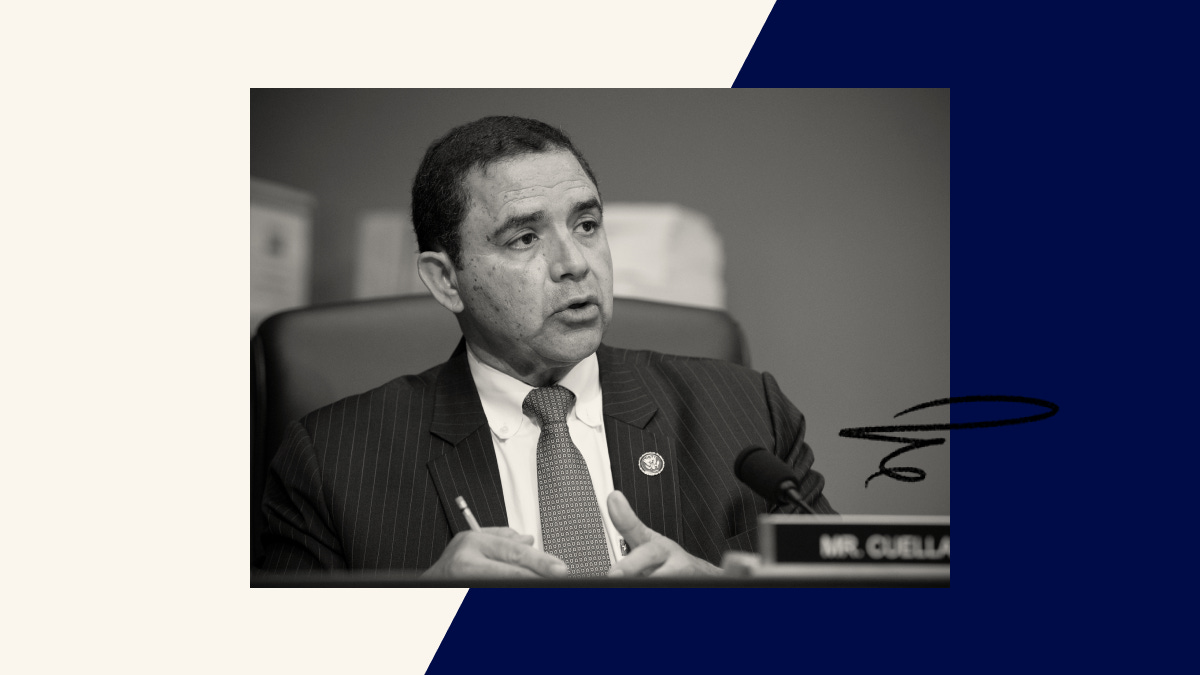Henry Cuellar was indicted. Why that’s good for democracy
Healthy democracies hold political leaders accountable
Last Friday, Democratic congressman Henry Cuellar was indicted by a federal grand jury for bribery and acting as a foreign agent. The indictment alleges that Cuellar and his wife Imelda accepted bribes from an oil company controlled by the Azerbaijani government and a Mexican bank in exchange for influencing foreign policy and legislation in these entities’ favor.
At first blush, these allegations of public corruption don’t seem like a positive reflection on the current state of American democracy. But if we focus on the process behind these prosecutions, rather than the substance of the allegations, we’ll see an institution operating according to the norms and practices meant to uphold the rule of law and other democratic principles. Which is notable given that the Department of Justice has been under near-constant attack from former president Donald Trump and his movement as a fundamentally anti-democratic, authoritarian agency.
Healthy democracies hold political leaders accountable
According to Trump, the DOJ has been weaponized into a partisan tool that Democrats use to silence their opponents. His evidence: his own prosecutions.
But prosecuting political leaders is something that should happen in healthy democracies, provided the evidence warrants it, the case is brought by a prosecuting authority that has safeguards in place to avoid politicization and that those safeguards are being followed.
(For more resources on the dynamics around prosecuting leaders, read our guides on Investigating and Prosecuting Political Leaders in a Democracy and Prosecuting Political Leaders During an Election.)
By all available evidence, the indictment of Henry Cuellar appears to have been made within those safeguards. And the political dimensions of this case — a prosecution of a powerful Democratic congressman in a competitive district by a Department of Justice in a Democratic administration — only underscore that this prosecution appears to be one initiated without any improper political considerations.
Donald Trump has railed repeatedly against “Biden’s” Department of Justice as corrupt and weaponized, accusing it of undertaking prosecutions for partisan political gain — all while explicitly promising to weaponize the Department himself if he reassumes the presidency in 2025. And two weeks ago, several justices on the Supreme Court extended sympathy to Trump’s point of view, entertaining the notion that the president needs a king-like immunity to protect him from rogue prosecutors.
This notion is misguided and dangerous. (For an explanation of why, read Four takeaways from Trump’s SCOTUS immunity hearing).
Abandoning the principle that no one is above the law — a principle foremost in the minds of the founding generation — out of fear that the law may be wielded unfairly would set our society further down the path towards authoritarianism. That a fear of politicized law enforcement is unfounded only compounds the error.
The Department of Justice is, in fact, independent
Cuellar’s indictment — and the indictment last fall of powerful Democratic senator Bob Menendez as well as the December indictment against the president’s own son, Hunter — is evidence that the current Department of Justice is not in fact weaponized.
These indictments of Democrats by a Democratic administration give the lie to Trump’s assertion that the DOJ is a political tool one party uses against another. And these indictments follow a long precedent laid by Republican and Democratic administrations of prosecuting political leaders regardless of their party affiliation.
This precedent exists in large part by operation of the longstanding norm of DOJ independence — the idea that the White House should not interfere to direct or control specific enforcement matters. Over the years, policies, procedures, practices and structures within the DOJ have developed to ensure this norm is adhered to across administrations. And the courts and Congress have ratified this norm, baking a presumption that prosecutorial decisions are made without improper considerations into a number of legal doctrines and drafting criminal statutes against the background assumption that they will be enforced neutrally and objectively by an independent and professional DOJ. The result: prosecutions based on evidence, not on politics. Representative Cuellar’s indictment is just the latest example of DOJ independence at work.
Donald Trump has long been a heavy user of psychological projection, accusing others of the very misdeeds he is committing. The political purpose of this is obvious — to excuse his own behavior and make efforts to hold him accountable seem unfair. Thus Trump seeks to justify his desire to turn the Justice Department into a vehicle for his own personal retribution by claiming that the Department has already been weaponized against him.
But there is one problem with his attempt to destroy the independence of federal law enforcement by telling the American people it’s already happened: the fact, as evidenced by last week’s indictment, that it’s just not true.






